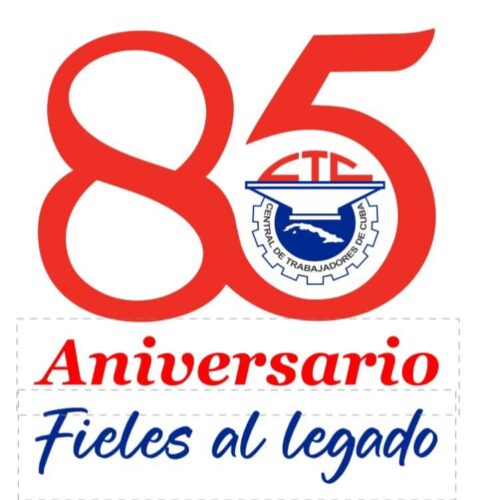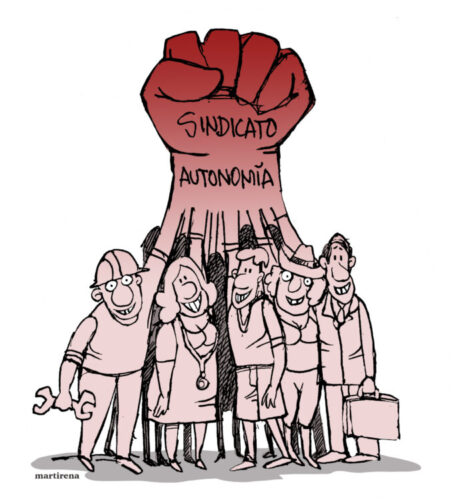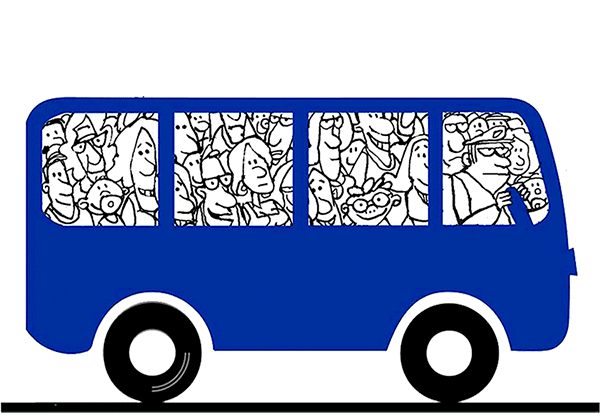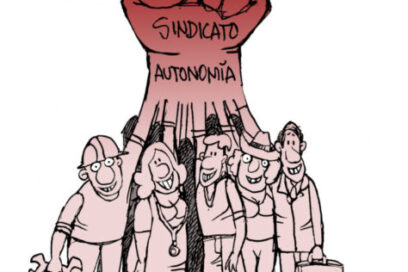 This section La Guagua began with LA GUAGUA to the 22nd Congress, From the General to the Particulars, a tour through each of the paragraphs of the document issued by the National Secretariat of the Central de Trabajadores de Cuba as a call to the 22nd Congress of the CTC to be discussed in the union sections.
This section La Guagua began with LA GUAGUA to the 22nd Congress, From the General to the Particulars, a tour through each of the paragraphs of the document issued by the National Secretariat of the Central de Trabajadores de Cuba as a call to the 22nd Congress of the CTC to be discussed in the union sections.
In this section we will deal with the second paragraph of the text:
Substantial transformations are taking place in the labor and union scenario of the country, as a result of the decentralization of powers to the Socialist State Enterprise to provide it with greater autonomy, the reorganization of employment in view of the growth and diversification of the private sector, together with the dynamics of changes applied in the regulatory legal framework preserving the essential bases of equity and social justice.
Therefore, for trade union action we must take into account that it takes place in a context of substantial transformations in the labor and trade union scenario of the country.
Of course, it is not enough to state that there are substantial transformations, but we must examine the factors that give rise to this radical change down to the level of the affiliate, and that in the first place is: the decentralization of powers to the Socialist State Enterprise to provide it with greater autonomy.
Faced with such decentralization of powers, the union section or bureau cannot remain static, since they also require greater autonomy as the enterprise itself seeks, and this is a matter impossible to learn in manuals, although all the experiences of any place in the world can and should be taken to adapt them to our conditions and concepts.
Once the Call has made this statement, as we get closer to the productive base, we have to strip it more and more of exhortations, calls and repetitions, and collectively discuss how to act in an enterprise with the autonomy it lacked.
The senior union officials involved should not limit themselves to reiterating over and over again the indication, but contribute to encourage the thinking of what to do in each place and at each moment, and this is something that the affiliates can know much better.
With its characteristics, the trade union movement has to be aware of the government’s general objectives to achieve macroeconomic stabilization, raise foreign income and increase national production.
But it is not to know them in order to repeat them, but to guide union thinking and seek concrete answers in each workplace. Another substantial transformation in the labor and trade union scenario of the country is the readjustment of employment in view of the growth and diversification of the private sector.
Undoubtedly, this area is one of the most challenging situations, since now the challenge of union work arises in a scenario where the non-state sector is diverse, and of course, each form requires appropriate treatment.
This significant change is underway at a time when the trade union movement still had many problems to solve in its functioning when state forms predominated.
Perhaps as never before in the last half century, there is a complexity of this magnitude in which the Central de Trabajadores de Cuba , its unions, bureaus, sections and affiliates must march together with the administrations, without depending on them nor in antagonistic contradictions, since the factors mentioned above are linked to the dynamics of changes that are applied in the regulatory legal framework.
It is not a matter of union officials and members having to become specialists in law, but they must equip themselves with the necessary knowledge to be able to represent and be represented in order to preserve the essential bases of equity and social justice.
In summary: We tend to constantly want to change everything that needs to be changed, and this organic process is an opportunity to fulfill that idea, but it must be done according to the historical moment.
Acerca del autor
Licenciado en Periodismo y licenciado en Ciencias Sociales, autor de El Foro en Cubahora, jubilado y reincorporado en la Redacción Digital de Trabajadores, donde escribe las secciones LA GUAGUA y EN 500 CARACTERES, fue corresponsal del periódico Vanguardia en tres de las seis regiones de Las Villas, Jefe de Redacción fundador del periódico Escambray, Corresponsal Jefe de la Agencia de Información Nacional (actual ACN) en Sancti Spiritus, colaborador de Radio Progreso, Prensa Latina y Radio Sancti Spíritus; así como Jefe de Información, Subdirector y Director del periódico Vanguardia, donde administró sus foros de discusión.



